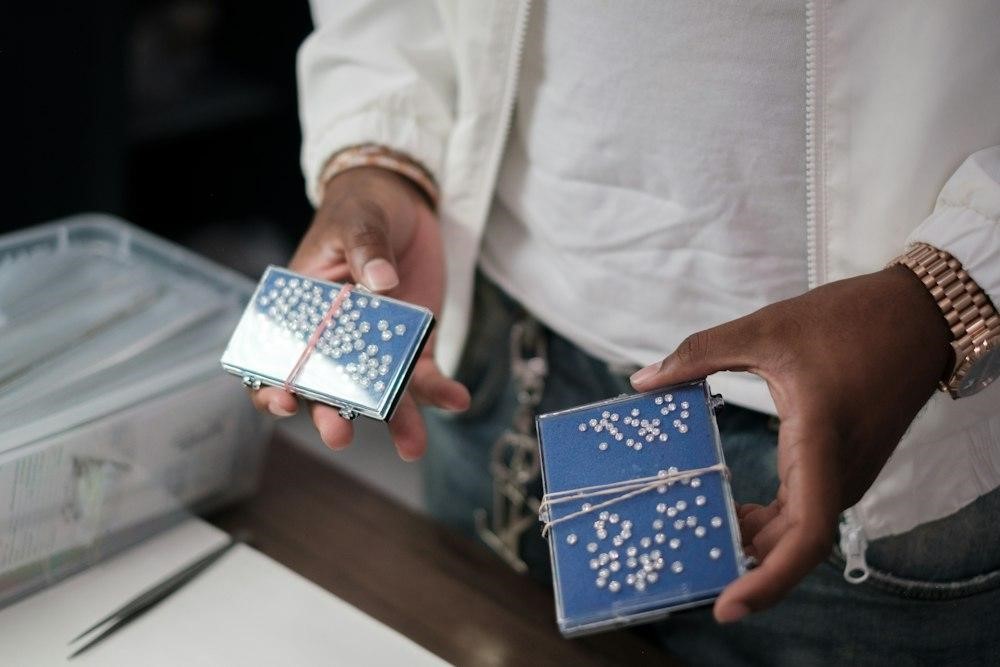You most likely have a nice assortment of jewelry you have amassed over the years at home. Many people have jewelry they would consider selling for cash, whether it’s a gold pocket watch or a diamond engagement ring. If you have some fine but old jewelry, trading it and utilizing the money raised to buy something new would be best.
Additionally, every jewelry box may need a little tweak now and again, and it always feels nice to pare down and clean, mainly when there is financial gain. Your jewelry box contains a nice assortment of accumulated gems, including your first set of earrings and items you inherited. While some of these items may be important to you, others may have long since been forgotten.
Pieces wear out more quickly as your collection grows, and you may ultimately reach a point where you’re willing to part with some of them. Perhaps you recently found a box full of ancient jewels in your attic or received certain items from a loved one you don’t wear. Don’t let these exquisite antiques be neglected and collect dust. Bring them out into the open and put some cash in your pocket as you make someone fall in love with them again. Here are the steps to unlock the value of your estate jewelry.
1. Assessment and Appraisal
Before agreeing to sell estate jewelry, have a respectable jeweler or repair specialist examine it. A jewelry appraisal is one method to do this if you need help to read the hallmark stamp on it.
Consider receiving an appraisal first before choosing where to sell your jewelry. A detailed evaluation will include details about the item, including the gram weight and the quality and specifications of any diamonds (using the 4 Cs as a reference). The appraisal cost will vary depending on the quantity of items and the level of intricacy involved. Appraising one engagement ring takes less time than a complete jewelry collection.
When you sell the piece, you may use the appraisal value allocated to the diamond or jewels as a reference for resale. Consider contracting with an estate sale business to handle the vast quantities of fine jewelry you wish to resell if you don’t want to waste time approaching potential purchasers.
There are older and rarer pieces of jewelry than others that can help you determine whether the silver is a genuine antique and when it was made. If you own an entire set of rare cutlery, this might significantly impact the sales price. Being an informed seller can help you better understand what to charge.
2. Research the Market
Finding the ideal person to resell your jewelry might be challenging, but there are a few qualities to look for in a seller to help you make up your mind. One of the best strategies to guard against getting underpaid for your jewelry is to conduct thorough research on reliable buyers. There are many possibilities available for selling, but you can still be underpaid.
Start by reading reviews carefully and inquiring about the techniques they use to set their rates and regarding selling licenses and accreditations. Reputable jewelry buyers will be open and honest with you regarding each aspect. Consider collecting bids from other vendors, as buyers may have different offers.
3. Monitor the Price
Selling jewelry may be a terrific way to accomplish two goals: getting more money and organizing a tangled mess of a jewelry box. Regretfully, you cannot predict with certainty how much money you will receive for your unwanted jewelry.
Diamonds are subject to regular price fluctuations due to many global causes. The key to selling your jewelry is having information. Although the market price will probably differ from the amount you will get for your unwanted jewelry, knowing the metal’s current price can help you compare offers with some practicality. If you’re not rushing to sell your jewelry, watch the price to determine the right moment to trade.
4. Choose the Right Selling Platform
Many methods exist to sell unwanted jewelry for money, from traditional yard sales to consignment stores and auction houses. Every alternative demands a different amount of time and work, and certain selling options may pay you more than others.
Auction houses or online jewelry consignment companies are good options for valuables over $500. They are professionally managed and reduce your risk of falling victim to fraud. If the items aren’t worth $500, consign them with a nearby secondhand shop, take some pictures and post them to Facebook or another online marketplace, or try your luck at a neighborhood jewelry store that could pay cash for them. For costumes and “junk” jewelry, yard sales are fantastic.
5. Negotiation and Documentation
Getting a third-party assessment of your jewelry will help in your negotiations when selling online to pawn shops or jewelry retailers. Where you market your jewelry may depend on your understanding of its value. You can also use it to negotiate better prices with vendors.
Although jewelry retailers provide free appraisals, obtaining your own lets you compare the results and shields you against dishonest sellers. After assessing your jewelry, consider getting multiple estimates from potential buyers to receive the greatest bargain.
Take pictures of your jewelry and record the information on each piece before delivering it to or leaving it with a seller. If you ever need to use insurance, any appraisals you completed before selling can also be utilized.
Bottom Line
Selling your jewelry is the best alternative to receiving actual cash. Find a buyer with prior experience selling jewelry similar to yours if you have determined this is your best action. Shops with greater expertise and understanding of your jewelry will make you the most reasonable offer since the amount they will offer you is determined by the retail worth they estimate it has. Following these guidelines, you’ll be more equipped to sell gold jewelry successfully and enjoyably.


